Mamata retains portfolios in new cabinet, major changes in education, food & supplies
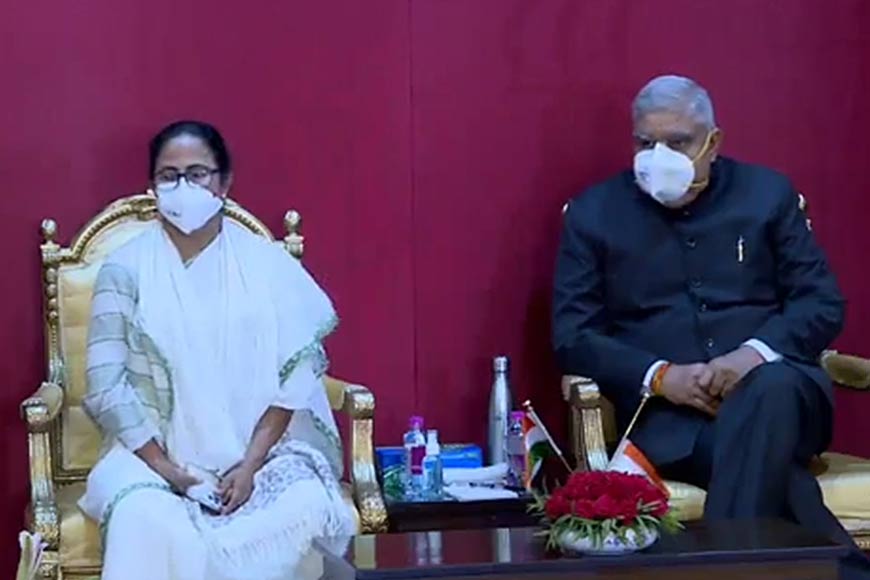
A total of 17 new faces, including former national cricketer Manoj Tiwary, are among the ministers in Chief Minister Mamata Banerjee’s third-term cabinet, representing an interesting mix of old and new. With the addition of these 17 names, the strength of the cabinet now stands at 44, including Mamata herself. The complete list of ministers was announced at a press conference by the chief minister at Nabanna today.
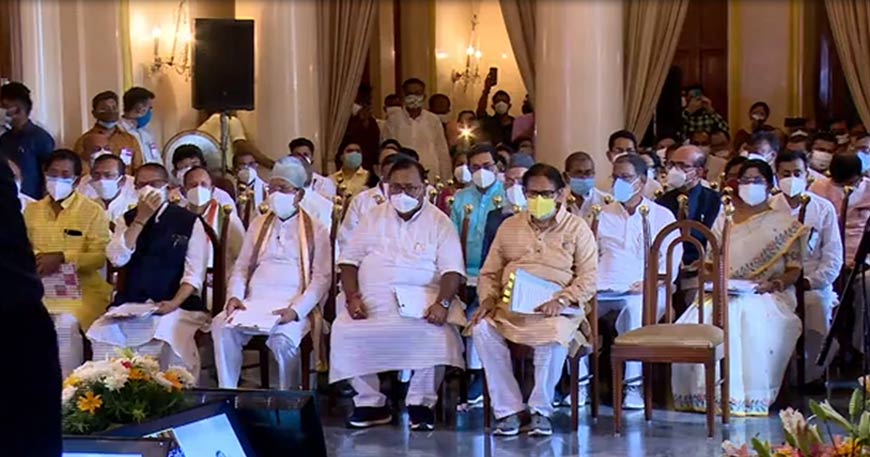
She herself has retained a number of key portfolios, including Home and Hill Affairs, Health and Family Welfare, and Information and Culture. That apart, she has taken on three more portfolios - Personnel and Administrative Reforms and e-Governance, North Bengal Development (earlier held by Rabindranath Ghosh, the MLA from Natabari), and Land and Land Reforms, Refugee Relief and Rehabilitation. However, the chief minister has handed over Minority Affairs and Madrasah Education to Golam Rabbani, who was minister of state for the Labour Department in the previous cabinet.
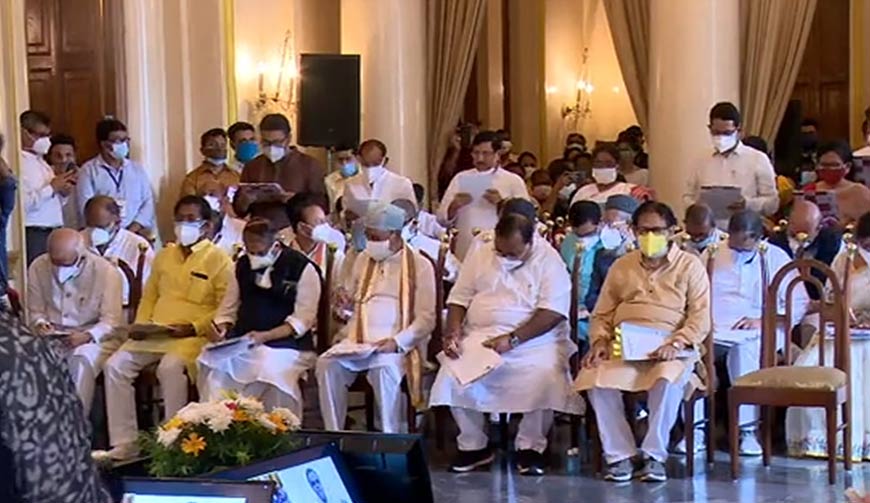
Not surprisingly, veteran economist Amit Mitra has retained the Finance portfolio, which he has now held for three terms, though ill health prevented him from contesting the Vidhan Sabha elections this year. There has been speculation that the government is so keen to have Mitra continue as finance minister that it may even consider reviving the bicameral legislative system, which was dismantled in the state in 1968.
One significant change has come in the Education Department, with the ministerial portfolio going back to former Education Minister Bratya Basu, who had handed it over to Partha Chattopadhyay. The latter has instead been reinstated as minister for Industry, Commerce and Enterprises. Alongside, he will also be in charge of the Information Technology and Electronics, and Legislative Affairs departments.
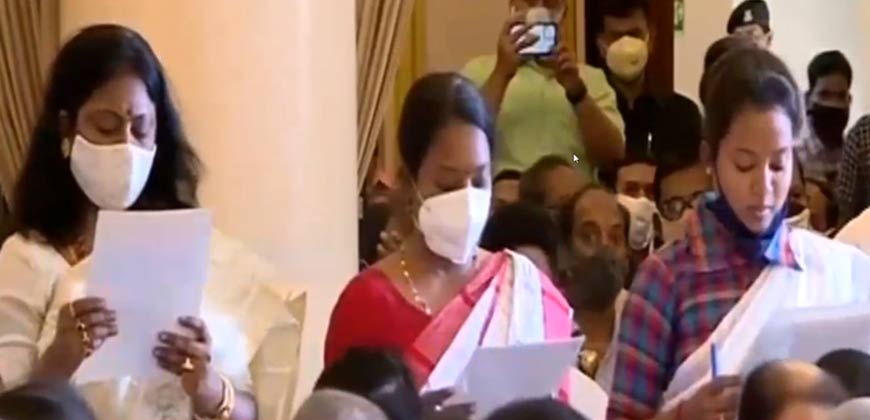
The other notable change comes in the Food and Supplies portfolio, where Rathin Ghosh takes over from Jyotipriya Mallik as minister, with the latter assuming charge of the Forest and Non-Conventional and Renewable Energy Sources departments. Also, Firhad Hakim will no longer be in charge of Urban Development and Municipal Affairs, but will look after both Transport and Housing departments. Chandrima Bhattacharya has been handed independent charge of Hakim’s previous portfolio as minister of state.
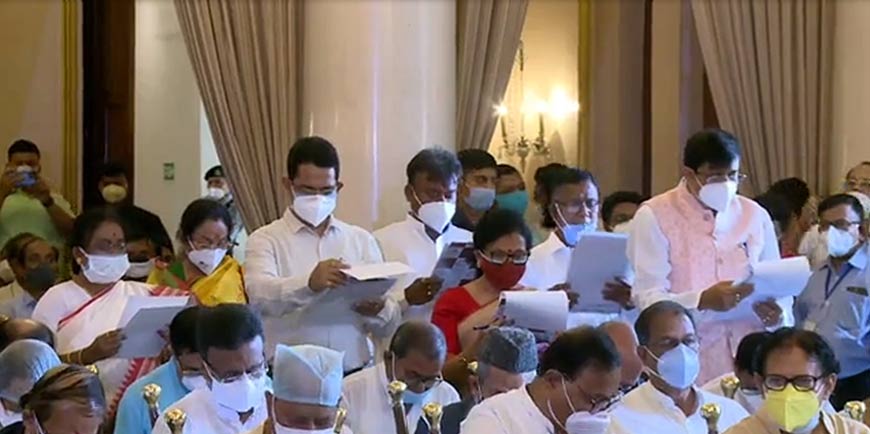
Among the new faces, Akhil Giri will be minister of state (independent charge) of the Fisheries Department. Ratna De Nag will look after the Environment Department, Humayun Kabir gets Technical Education, Training & Skill Development, and Shiuli Saha will be in charge of Panchayat and Rural Development as minister of state.
Full list of West Bengal ministers by portfolio
Cabinet Ministers
Mamata Banerjee: Home; Health and Family Welfare; Land and Land Reforms, Refugee Relief and Rehabilitation; Information and Culture; North Bengal Development
Subrata Mukherjee: Panchayat and Rural Development; Public Enterprise
Partha Chatterjee: Industry and Commerce; Information Technology; Legislative Affairs
Amit Mitra: Finance; Planning, Statistics and Programme Monitoring
Sadhan Pandey: Consumer Protection; Self-Help Groups and Self-Employment
Jyotipriya Mallik: Forests; Non-Conventional and Renewable Energy Sources
Bankimchandra Hazra: Sundarban Affairs
Manas Ranjan Bhunia: Water Resources Investigation and Development
Saumen Kumar Mahapatra: Irrigation and Waterways
Moloy Ghatak: Law; Judicial; Public Works
Aroop Biswas: Power; Youth Services and Sports
Ujjwal Biswas: Correctional Administration
Arup Roy: Co-operatives
Rathin Ghosh: Food and Supplies
Firhad Hakim: Transport; Housing
Chandranath Sinha: Micro, Small and Medium Enterprise
Sobhandeb Chatterjee: Agriculture
Bratya Basu: School and Higher Education
Pulak Roy: Public Health Engineering
Shashi Panja: Women and Child Development and Social Welfare
Mohd Ghulam Rabbani: Minority Affairs and Madrasah Education
Biplab Mitra: Agricultural Marketing
Javed Ahmed Khan: Disaster Management
Swapan Debnath: Animal Resources Development
Siddiqullah Chaudhuri: Mass Education Extension and Library Services
Ministers of State (Independent Charge)
Becharam Manna: Labour
Subrata Saha: Food Processing Industries and Horticulture
Humayun Kabir: Technical Education, Training & Skill Development
Akhil Giri: Fisheries
Chandrima Bhattacharya: Urban Development and Municipal Affairs; also MoS for Health and Family Welfare; Land and Land Reforms, Refugee Relief and Rehabilitation
Ratna De Nag: Environment; Science and Technology and Biotechnology
Sandhyarani Tudu: Paschimanchal Unnayan Affairs; also MoS for Legislative Affairs
Bulu Chik Baraik: Backward Classes Welfare, Tribal Development
Sujit Bose: Fire and Emergency Services
Indranil Sen: Tourism; also MoS for Information and Culture
Ministers of State
Dilip Mondal: Transport
Akhruzzaman: Power
Seuli Saha: Panchayats and Rural Development
Srikant Mahato: Micro, Small and Medium Enterprise
Yeasmin Sabina: Irrigation and Waterways; North Bengal Development
Birbaha Hansda: Forests
Jyotsna Mandi: Food and Supplies
Paresh Chandra Adhikary: School Education
Manoj Tiwary: Youth Services and Sports
Earlier, West Bengal Governor Jagdeep Dhankhar administered the oath of office and secrecy to all the new ministers at a brief, vastly scaled down swearing-in ceremony at Raj Bhavan. Three ministers - Amit Mitra, Bratya Basu and Rathin Ghosh - were sworn-in virtually. Mitra has been unwell for a while, and both Basu and Ghosh are both recovering from Covid-19.
Significantly, there are eight women ministers in the cabinet, including three from Scheduled Tribe communities - Birbaha Hansda, Sandhyarani Tudu, and Jyotsna Mandi. This is almost certainly in response to the large percentage of women’s votes which went to the Trinamool Congress (TMC) in this year’s Vidhan Sabha elections.










